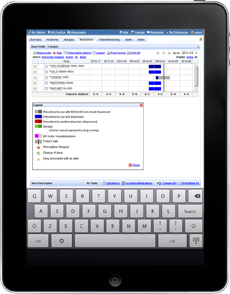A Randomized Trial of the Effectiveness of On-demand versus Computer-triggered Drug Decision Support in Primary Care.
Medication-related illness very often results in the hospitalization of patients. Is now the sixth cause of death. This medication related problems are sometimes avoidable. There is a system that could let doctors know about those events when they are writing a prescription. This eventually could prevent some problems, but most of these systems use so many warnings that doctors do not pay attention to every warning.
For example, somebody is taking a medication. The doctor gives him/her another medication because he/she has pain. It could be that these two medications do not mix very well and the patient could have a very bad reaction. This could not have happened if the doctor had been given a warning about the two medications not mixing well.
In this study the authors wanted to try a new method. This was a computer system that could warn doctors about possible problems with the medication they were about to prescribe. To do this they set two groups. The first group of doctors would receive the alerts all the time. The second group of doctors could check the alerts whenever they wanted.
The authors found a difference between the two groups. Doctors who received the alerts all the time did not pay attention to them 9 out of 10 times. Doctors who were able to check the alert whenever they wanted to paid attention to them much more often. The fact that doctors could receive an alert when they felt it was needed may be more helpful. But for both groups there were prescribing problems still existed. The alert systems still need more work.


